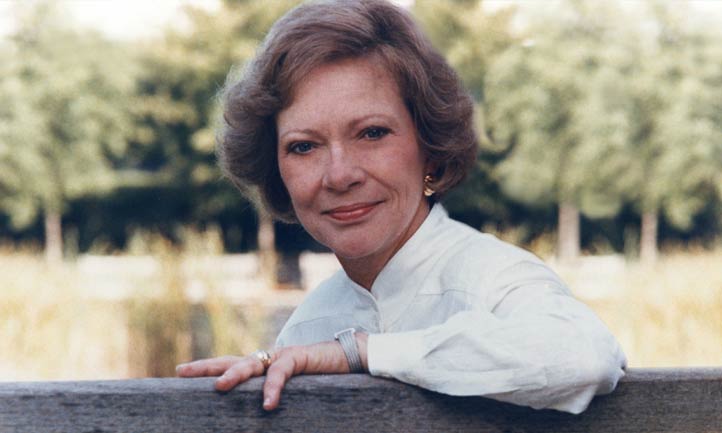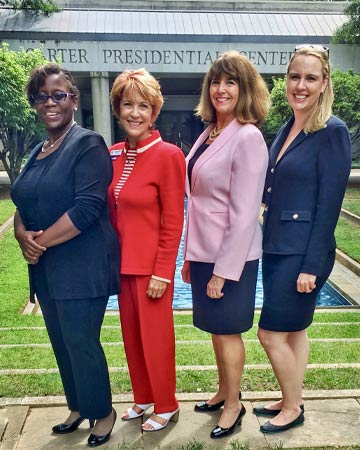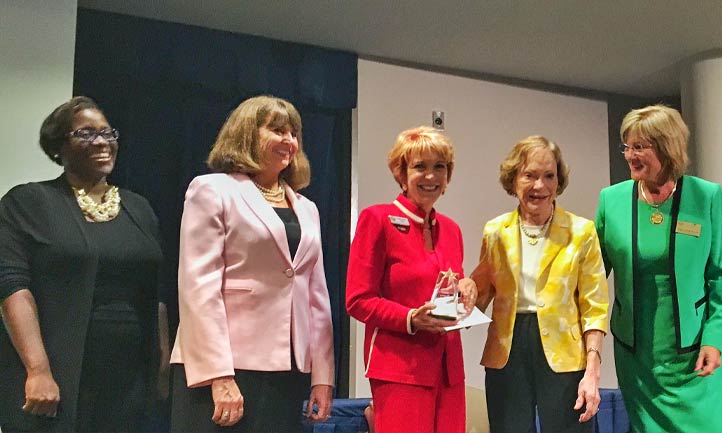Former First Lady Rosalynn Carter: A Legacy of Care
Author: Kristi Stolzenberg
Former First Lady Rosalynn Carter famously noted, “There are only four kinds of people in the world — those who have been caregivers, those who are currently caregivers, those who will be caregivers, and those who will need caregivers.” Mrs. Carter’s concept, that caregiving is a universal language and its joys and challenges will touch each of our lives, shone light on an experience that had previously been a lonely and emotional journey.
Caregiving, as Mrs. Carter learned firsthand at a young age in her own family, is a selfless act — often the last act — of unconditional love. The needs of the caregiver are unique, but often unspoken and, therefore, overlooked. Caregiver hearts often hold conflicting emotions — from love and grief to frustration and fatigue, but they rarely seek support for themselves. So, Mrs. Carter created a legacy of caring for the caregiver.

This legacy has helped the Tragedy Assistance Program for Survivors (TAPS) meet the evolving landscape of military and veteran loss, where illness loss is now one of the leading causes of death among service members. “We are fortunate to have walked alongside Rosalynn Carter — applying her personal knowledge and advocacy and the ongoing efforts of her institute to our delicate task of supporting military and veteran caregivers who become survivors,” shared Bonnie Carroll, TAPS Founder and President. “Mrs. Carter’s extraordinary work helped a nation become more compassionate. Her influence is woven into our Caregiver to Survivor support services and so many other aspects of what we do at TAPS.”
The former first lady turned her passion into practice with the establishment of the Rosalynn Carter Institute for Caregivers (RCI) in 1987 to give a voice and support system to caregivers nationwide. Years later, in 2014, she was present as then-First Lady Michelle Obama and Dr. Jill Biden announced new initiatives in military-connected caregiving.
Military and veteran caregivers were supporting loved ones with physical and mental wounds of war and service-connected illness, and they had distinct needs that could only truly be understood by someone who walked the same path. As Mrs. Obama honored the caregivers in attendance during that 2014 ceremony, and thanked the agencies and organizations offering them assistance, she shared that TAPS was committed to training caregiving peer mentors to ensure military and veteran caregivers had access to the same nationally recognized, evidence-based peer support model that TAPS has used since 1994 to bring healing to military and veteran survivors. After its successful operation for three years, this new Military and Veteran Caregiver Network (MVCN) of peer support found its home with the American Red Cross, where it continues to thrive today.


In 2016, Mrs. Carter presented RCI’s inaugural Caregiver Champion Award to TAPS’ own Dr. Lynda Davis, who represented both TAPS for its establishment of the thriving community of caregiver peer mentor support with the MVCN. Dr. Davis, who remains a proud advocate for military and veteran caregiver survivors recalls the significance of receiving the first RCI’s first award from the former first lady, “It was a moment in time that I will never forget. To represent TAPS for the fruits of its shared expertise in peer support and its effective delivery of training and services was a true honor.” Dr. Davis continued, “We are better equipped today to support these ‘heroes behind America’s heroes,’ as Mrs. Carter said, because of her tremendous efforts.”
Mrs. Carter’s mission has long been intertwined with our mission at TAPS. We are forever grateful for the light she shone on the distinct needs of caregivers and the opportunity to work together to support military and veteran caregivers — especially after the loss of their loved one. She will be missed dearly by the caregiver community and our entire nation. We remain committed, at TAPS, to carry her compassion onward — using what she taught us to continue supporting caregiver survivors.
Kristi Stolzenberg is the TAPS Magazine Editor.
Photos: The Carter Center and TAPS Archives.
